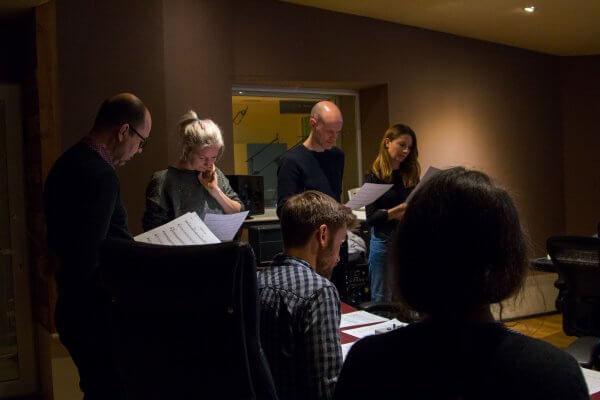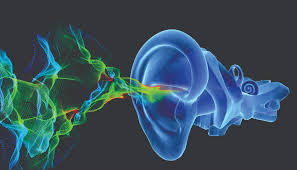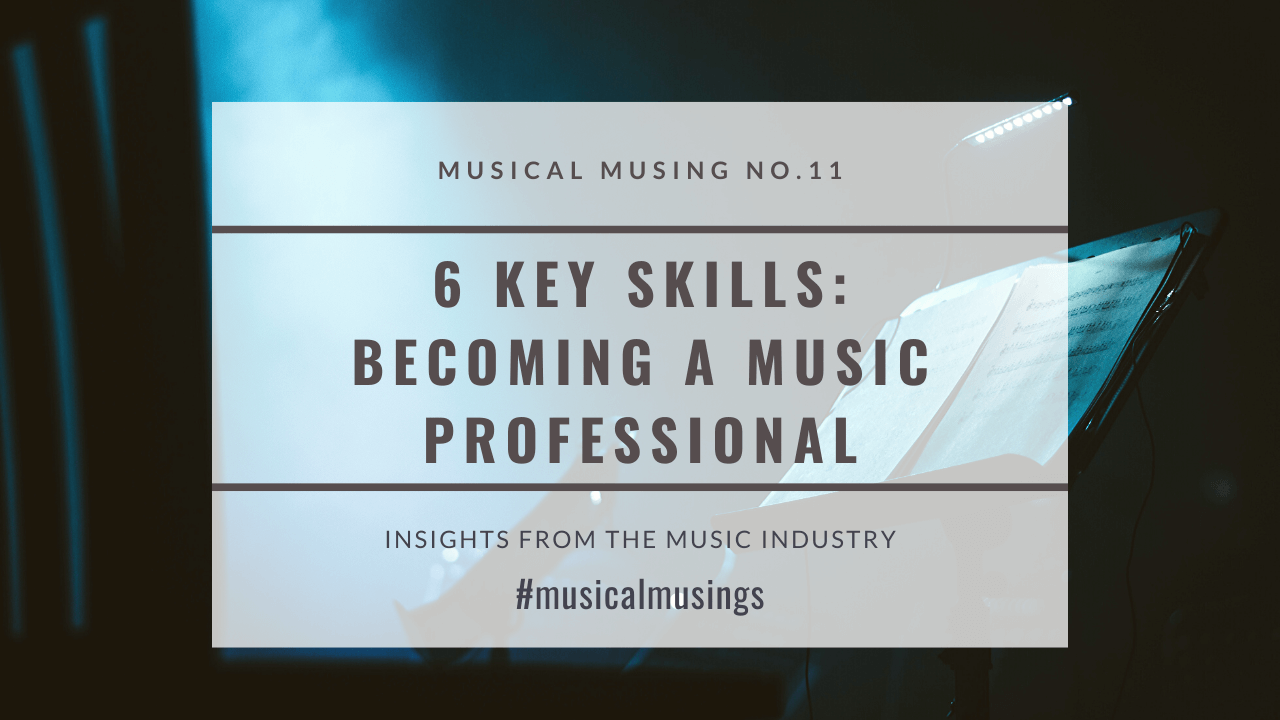How to Become a TV and Film Composer (6 Steps to Success)
If you are you wondering ‘how to become a TV and film composer?’ then you’re in the right place. Whether you want to produce artists or get your music synced on TV, Film & Ads, I’ve outlined 6 key things which have helped me since quitting my 9-5 at the age of 30, to now writing music for some of the biggest music companies in the world.
I talk to a lot of people who are at the beginning of their music careers either through my internship programme or through the Sync Accelerator Music Mentor course I run and many of them ask the same question.
The one question which keeps cropping up is “How do I make it?” But becoming a professional TV and film composer or music producer cannot be distilled down into one simple action.
I think this expectation extends beyond music to anyone who wants to become a professional creative. You are essentially treading the line between art and commerce and it can be difficult to find.
In 2011 I quit my handsomely paid marketing consultancy job to become a full time TV and film composer. Years later I am grateful to be earning a good living from producing music professionally. But there has been an incredible amount of hard work inbetween
From my personal experience it seems that “making it” (in any walk of life) is a combination of the following things:
Time
If you plant a seed, you don’t come back the following day and expect to see a tree. It takes years of nurturing and growth in the right conditions. The same can be said if you want to become a TV and film composer or music producer.
In an age of “life-hacking” there is often the expectancy for things to happen overnight. Invariably they don’t. There is no one single lightning strike.
Success is the culmination of years of hard work and dedication. So make sure you that you enjoy the journey.
“Making It” Doesn’t Exist
The tendency is to become focused on “making it”. This will probably never actually happen because as someone who is passionate and driven, every time you reach your goal, you’ve already set a new one.
It’s important to have a vision and goals as this focuses your energy but these will evolve overtime. I started out wanting to be a singer-songwriter but after four years of following Ed Sheeran around the London circuit, I realised that I enjoyed the composing and producing much more than the performing. So I switched.
And whilst I earn a good living writing and producing music, I don’t think of myself as having ‘made it’. I’m constantly looking to learn, grow and get better and as such the goal posts are always moving.
It’s also worth pointing out that as a freelancer, you never actually know where the next piece of work is coming from.
Critical Listening
This is an important part of how to become a TV and film composer because it enables you to dissect a piece of music and understand what is happening harmonically, rhythmically, instrumentally, melodically etc.
But more importantly it is the ability to listen to your own work and critically evaluate it.
This is one of the key skills that any music producer or composer needs.
From a composing, production and mixing perspective, A/B your music with a commercially released productions and try to understand why yours doesn’t sound the same.
My orchestral scores don’t sound like John Williams’. I am aware of that and will take the necessary steps to try understand how he composes music. Not with a view to copying but with a view to expanding my musical arsenal.*
Critical listening is something which improves with practise and there are still some things you can do to actively improve your skills.
After mixing a track I can go back days later and hear problems in the mix. I’m not sure I’ll ever truly be happy with a piece of work. I’m learning everyday how to become a music producer who is better than the one I was the day before. This means there’s always something I could go back and change but knowing when to leave your art alone is also important.
Excellence, not Perfection
As a creative, the pressure to create can be immense and pressure is a great way to stifle creativity. The good news is that this is self-imposed and you can get past it. But know that “perfect” doesn’t exist.
I am a reformed perfectionist, and trying to achieve the impossible is a thankless task.
So I switched my mindset to pursuit of excellence. Excellence does exist and is attainable. But knowing when to leave a piece of work is difficult. I often get to a point where I am constantly making tweaks on my music that the average person will not notice. That’s when I need to leave it alone and know that it is excellent.
Don’t Look for External Validation
I used to look for external validation from others before I could believe that my work was good enough. This stems from my childhood where I rushed home to tell my Dad that I got a B in a test and he asked why I didn’t get an A. That question gave me the desire to perform but for the wrong reasons… for his approval.
 Relying on validation from other people in order to know that you music is good, is dangerous territory. Art is very subjective and everyone will have a different opinion. Having the confidence to believe in what you do no matter what anyone thinks is very important.
Relying on validation from other people in order to know that you music is good, is dangerous territory. Art is very subjective and everyone will have a different opinion. Having the confidence to believe in what you do no matter what anyone thinks is very important.
It’s worth mentioning that I always play my music for people. It’s a strangely revealing process sitting next to someone whilst playing them your music. If during the playback you find yourself making excuses for parts, then those parts need some attention. But an objective perspective from an impartial third party who’s opinion you respect, can be invaluable.
I wrote an article on talking about the virtues and pitfalls of getting feedback on creativity
However, in the same way that you might take some of their feedback on board, you should also have the strength to reject feedback you do not agree with. Have the confidence of your convictions.
Be Proactive
As a freelance TV composer or music producer you are running a business. And like any business you need to go and find customers. When you find that customer, you need to service their needs and maybe even exceed their expectations so that next time they need music, they come straight to you.
I can’t overstate the importance of being proactive. You become a freelance composer through self-motivation, hard-work, and dedication. There are no job applications to fill out or interviews to attend, you need to find and create your own opportunities.
Write or produce music even when you don’t have a brief. Be prolific. Because you’ll get better with every piece you write or produce. I used to get hold of old production music briefs and write to brief. It was a great way to focus my energy and got me composing for genres I wouldn’t normally listen to.
Go to music music networking events, cold call production companies, submit to production music libraries, research film music placement opportunities… just always be in action.
Sitting around waiting for the phone to ring is a very disempowering way to live.
Conclusion
So there you go, my 6 steps to success on how to become a TV and film composer. “Making It” doesn’t exist and being a composer can be hard. But as long as you set goals, critically evaluate yourself, strive for excellence, have the confidence of your convictions and are being proactive you should be able to forge a successful career in music. But it will take time and hard work so above all you need to make sure you enjoy doing it. As Steve Jobs (probably paraphrasing someone else) said:
“The journey is the reward”
If this has been helpful then please share it. My Musical Musings are all about helping people navigate the complicated world of being a music professional, so the more people that this benefits, the better.
Jim Hustwit is a London based Music Producer and Composer who writes music for TV, film and ads. He also runs the successful Sync Accelerator Mentorship Programme to help producers and composers learn the tools and strategic insights necessary to win TV, film and ad sync placements
*Whilst there is merit in emulating established composers and producers also be mindful of what you can do that’s different from everyone else. Play to your strengths and develop your own unique style. I’ve written an article on the importance of irreverence in creativity
FAQ
“What education do you need to be a film composer?” Whilst studying the art within formalised education can definitely help, I don’t think it is a necessity. I have no formal education in composition (I actually studied German and Business at Uni. So do you need a degree to be a film composer? I would say no. If you are focussed passionate and driven you could forge your own path.


